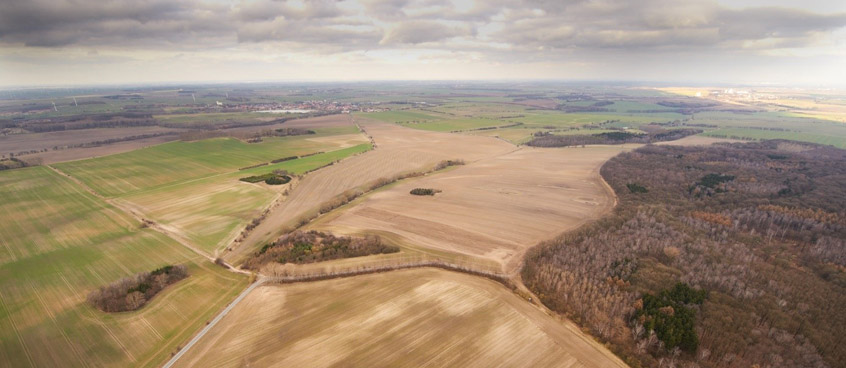
Governing transformations towards sustainable agrifood systems
Platform Project − PP 6.1
The main objective of the project is to provide knowledge and policy support for a transformational change of agrifood systems in Germany, the EU and globally. To this end, we investigate four levels: farms and production, agricultural landscapes, the Common Agricultural Policy of the EU and the global interactions and governance options with regard to agricultural products. Based on the findings at these four levels, we want to develop a joint concept for a transformational change of agrifood systems towards ecological sustainability.
Agriculture has a major impact on soils, water bodies and biodiversity worldwide, as well in Europe and Germany. Animal husbandry and agricultural land use emit large amounts of nitrous oxide, methane and carbon dioxide and thus contribute significantly to climate change. At the same time, agriculture is the backbone of human society and is integrated into ecosystems as well as social systems.
Social systems comprise, among others, well-established farming systems such as conventional and organic farming, legal and spatial planning systems (e.g. business and tax law, environmental and agricultural law), funding systems such as those within the EU’s Common Agricultural Policy, and international trade. Supply chain system involve a multitude of actors, including producers of agricultural inputs such as fertilisers and pesticides, seeds and machinery, landowners, farms, wholesalers and processors, retailers, and consumers.
In order to develop a joint concept for the transformation of the agrifood system and to assess leverage points and levers for transformational change, including policy and governance options, we consider the following levels of the agrifood system in four subprojects:
- The micro-level (production side): enabling change in farmers’ behaviour / uptake of more sustainable agricultural management practices (subproject 1)
- The landscape level: policies for enabling climate-adapted and environmentally sound agricultural landscapes in Germany (subproject 2)
- The European level: sustainability and equity implications of the European agricultural policy (subproject 3)
- The global level: understanding global interactions and governance options for sustainable supply chains (subproject 4)
Furthermore, the project wants to promote the exchange between science, policy, and society with its publications, workshops and other products.
The project is part of the research programme of the Helmholtz Association “Changing Earth – Sustaining our Future” (2021–2027) and aims to support the following objectives in the research field “Earth and Environment”:
- Understand human and societal drivers, causes, and impacts (including conflicts, synergies, trade-offs, rebound effects, and paradoxes) of societal responses to global change and extreme climate events (O10) and
- Develop governance mechanisms, policy options, and management strategies to secure environmental resources under global change and enhance transformations towards multifunctional landscapes, including urban spaces and the urban-rural nexus (O11).
Subprojects
Subproject 1: Governing behaviour change for the adoption of sustainable agricultural practices
Subproject 2: Climate-adapted and environmentally sound agricultural landscapes in Germany
Subproject 3: Sustainability and equity implications of the European agricultural policy
